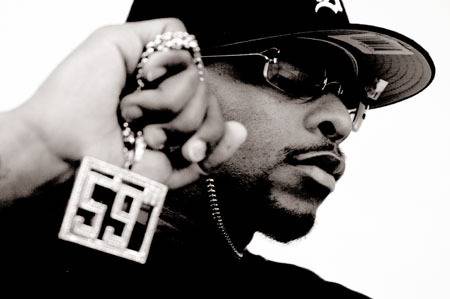 Do you listen to mainstream or underground hip hop? Which is better?
Do you listen to mainstream or underground hip hop? Which is better?
As a radio DJ, beatsmith, and student of hip hop, I find that I fall into the “mainstream vs. underground” topic far too often. When the issue is argued, hatred spews, daggers fly and feelings get hurt. But since it may be the difference between clarity and confusion throughout hip hop writing, I’ll get it out of my system now and put the lid on it forever. Here’s why underground heads and mainstream fans are both wrong:
Nowadays, pundits talk more about what’s missing from hip hop than what it still has, and in doing so, they can’t even get that right. For the record, “hip hop” is the art form; rap music is a facet of it, the fourth and last element among the other three (DJ’ing, graffiti expression and break dancing). Rap music today may be said to lack the genuineness, the original technique, the political message, etc. But what I think is most lacking from artists today is a fluent knowledge of hip hop history. It’s hard to make good music in a genre you know little about. Internet profiles and audio programs make becoming a rapper more possible than ever for anyone—this is great and terrible at the same time. Naturally, it’s becoming evident that not everyone should be in the game.
With that said, rap music as a career comes off as backward. It seems to be either too easy to get into or a lifetime struggle. Today’s most controversial artists (Soulja Boy, Lil Wayne, Drake, Kid Cudi for ex.) are also some of the most successful, and are lampooned by critics for “ignoring hip hop history” and for being a far departure from the way “real” hip hop is supposed to sound. At the same time, artists such as Common or Royce the 5’9, who both fit the stereotype of “real hip hop”, recently released unsuccessful albums (Common on Universal Mind Control and Royce the 5’9 with Street Hop). Other underground artists tend to maintain the traditional “real hip hop” sound, yet struggle with any real commercial success (granted, many do it for the love). Ironically, Common’s album was significantly geared for a wider audience, while the failure of Royce the 5’9’s album was largely due to its absence from the shelves. Larger retailers did not invest in Street Hop, albeit for the artist’s lack of mainstream presence, and sales suffered.
I think the difference between the most successful artist and the underground loyalist is the gimmick. This goes for any genre—as record labels struggle to sell hard copies and are desperate for new ways to reach a paying audience, the music simply can’t sell itself anymore. The logical business plan is to sign acts that interact with their consumers. Rap music that is trend-based, lyrically simple or accompanied by a dance (Soulja Boy’s case) grew to mainstream popularity in the mid 2000s because it was catchy, appealed to a wide audience and was similar to already-established styles.
The funny thing is, trend-based, lyrically simple songs accompanied by a dance were pretty much how the music began in the late 70s— as simple phrases, or raps, used to accentuate a DJ’s set that fans in the crowd danced to; ex: “put your hands in the air, wave em’ like you just don’t care!” This is why I tend to roll my eyes when underground heads label rap music to dance to as “un-hip hop.”
The difference between now and then, however, is the message. The simple mainstream rap songs today are not crowd interactive—they are often negative, violent, unoriginal or demeaning toward women. They’re often produced in an effortless “even a cave man can do it” style that fails to display how lyrics have evolved since 1979. And though there are underground artists who write violent, demeaning lyrics, they tend to be excused due to exceptional lyrical ability, a high degree of believability or political consciousness. There are too many “if’s”, “and’s”, or “but’s” in the mainstream vs. underground argument. Too much fine print.
I can’t imagine being an optimistic new listener attempting to explore rap music for what it is at all levels—an interesting departure from most other forms of music. Rap has become a clusterf*ck of greedy artists, pretentious artists, rules, regulations and fans who try too hard to identify. My best advice to that listener would be to grab a book and read until you can form an opinion on who’s real and whose “faking the funk” today. Because if you ask mainstream artists and underground artists who plays a bigger role in destroying hip hop today, both will reply, “they are.”
Troy Brundidge is in his third year as the host of Beats & Rhymes which airs Fridays on 107.1 FM at 10 p.m.








